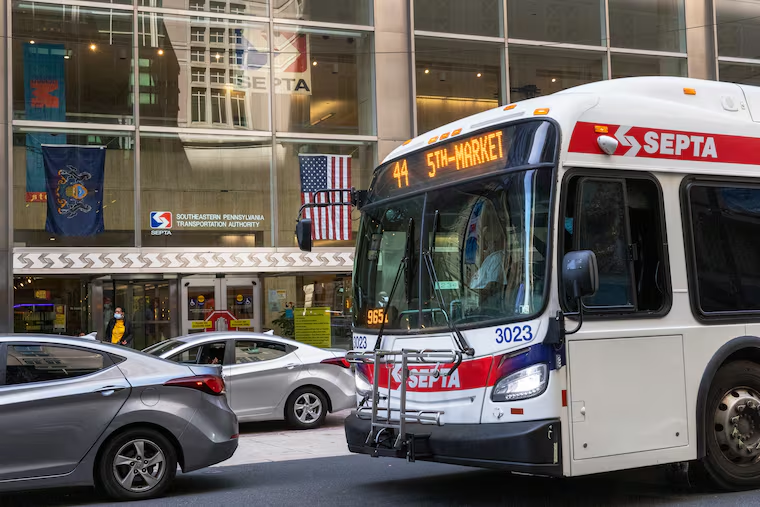SEPTA is cutting back on remote work for its administrative workers
The transit agency is cutting back on the number of remote work days available to its office employees beginning in November.

SEPTA will curtail the number of remote work days that its nonunion office workers can take beginning Nov. 4.
Starting then, only one remote work day will be allowed per week, CEO and general manager Leslie Richards informed staff on Friday.
“We love the increase in activity we’re seeing throughout our system,” Richards said in a Friday interview. “With the city employees coming back, with Comcast coming back, we want to support that trend and support Philadelphia responding in a positive way. So it was time for us to revise our teleworking policy.”
The order would apply to 2,109 office workers. Most of SEPTA’s employees — 9,300 — were never eligible for remote work. It is impossible to drive a bus or patrol a subway station from home.
But so-called SAM employees — supervisory, administrative, and management — have been able to work remotely at least two days a week.
Most of the affected employees work out of SEPTA’s headquarters at 1234 Market St. in Center City. Some workers who spoke with The Inquirer said they were blindsided by the decision and expressed frustration at the reduced flexibility. In some cases, employees had taken positions with SEPTA because of the hybrid work flexibility.
But some said they appreciated that remote work wasn’t being eliminated, as Mayor Cherelle L. Parker has done for the municipal workforce, and that SEPTA is giving two months’ notice before the change takes effect.
“I have had a remote working schedule the majority of my career, and I know how important it has been at times throughout my life,” Richards said. “That’s why we gave a two-month time period for employees to figure things out and talk with their families.”
In her email Richards informed employees that some positions could still be allowed additional flexibility, especially “to address recruitment and retention goals.”
Like many public agencies, SEPTA is suffering from a vacancy crisis although data was not immediately available about how many in-office positions remain unfilled.
But Richards decided that more in-person days would boost collaboration in the office and improve services for the public. The decision also comes as SEPTA faces a funding crisis and watchful Republicans in Harrisburg, who recently praised a small SEPTA fare increase.
“We understand the value of a flexible work environment to our team and did not come to this decision lightly,” Richards said in her Friday email to staff. “A stronger in-office presence allows SEPTA to continue to serve our riders, and it is vital to our core spirit value of putting safety first.”